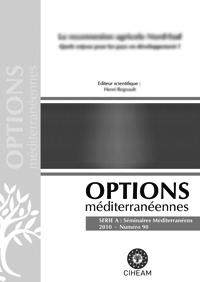| Article précédent | p. 55-61 | Article suivant |
Assessment of water harvesting techniques: Impacts on soil water and erosion in an arid catchment
Ouessar M., Abdelli F., Yahyaoui H., Maati M.
In the arid regions of Tunisia, considerable investments are being made in maintaining the old water harvesting techniques (WHT) and introducing new ones to capture the scarce amount of rainwater for agricultural and domestic purposes. Thus, a detailed impact of these techniques is needed in order to assess their actual and-or potential role for improving rainfed agriculture in drylands. The physical impacts of these techniques in an arid catchment of south-eastern Tunisia shows that these WHT are playing major roles in the mobilization of additional amounts of water for plant and tree supply as well as groundwater recharge in addition to the prevention of soil erosion and flooding.
- [ Afficher ]
- [ Télécharger ]
- [ Exporter la citation ]
Vous pouvez télécharger la citation au format :
- [ Imprimer ]
-
Mots-clés
CAPTAGE D'EAU, IMPACT SUR L'ENVIRONNEMENT, TUNISIECiter cet article
Ouessar M., Abdelli F., Yahyaoui H., Maati M. Assessment of water harvesting techniques: Impacts on soil water and erosion in an arid catchment. In : Cantero-Martínez C. (ed.), Gabiña D. (ed.). Mediterranean rainfed agriculture: Strategies for sustainability . Zaragoza : CIHEAM, 2004. p. 55-61. (Options Méditerranéennes : Série A. Séminaires Méditerranéens; n. 60). Final Seminar of the Regional Action Programme on Rainfed Agriculture (RAP-RAG), 2003/06/02-03, Zaragoza (Spain). http://om.ciheam.org/om/pdf/a60/04600045.pdf



